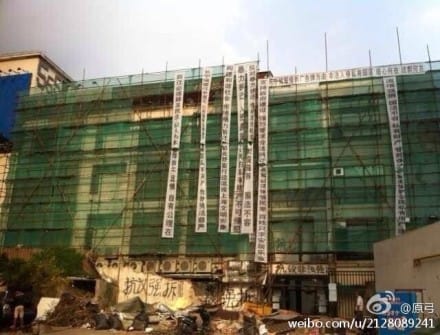Shanghai Attempts Demolition of Artist Compound
The Chinese government has partially and improperly demolished a portion of a studio compound in Shanghai, and used non-uniformed security personnel to threaten and intimidate its occupants, Hyperallergic has learned.
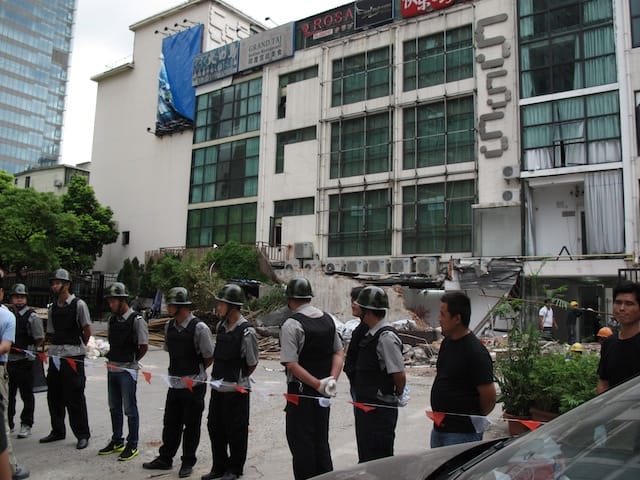
The Chinese government has partially and improperly demolished a portion of a studio compound in Shanghai, and they have used non-uniformed security personnel to threaten and intimidate its occupants, Hyperallergic has learned. The targeted property is owned by Yuan Gong, an artist whose work is currently on view at the Venice Biennale, and consists of seven artist studios, a film production company, a dance school, and several restaurants. Gong purchased the property in 2003, converting a factory into a mixed-use artistic compound by 2005.

In an interview with Hyperallergic through his assistant and translator, Yuan Gong described the municipality’s intimidations and allegedly illegal actions undertaken since he first received notice of an infringing billboard on his property on August 15. He alleges that although that notice was technically correct (the billboard had not been registered), this was then used as a pretext for a demolition of the compound, which he has refused to sell to private developers despite multiple offers in recent months.
Gong believes the municipality has plans to build a road through the property, and it intends to raze his compound both to build this road and illegally sell off the seized land to private developers. He further notes that municipal authorities had approached him last year about the road but did not reach an agreement to part with the land.

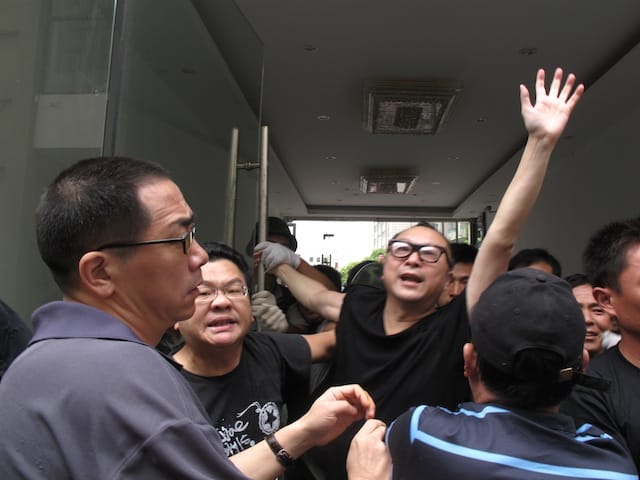
The attempted demolition took place on the morning of September 5, when heavy equipment and a crew of about 100 men arrived unannounced and began tearing down a structure on the property. Occupants of the compound were alerted and arrived quickly on the scene, and a scuffle ensued in which several people received minor injuries. Images of the scene seem to confirm Gong’s account, including the most remarkable aspect of the operation: the extensive presence of non uniformed men, wearing black t-shirts, whose affiliation is unknown — Gong calls them “mafia.”
In the days since, scaffolding has gone up on the building’s damaged facade, as have banners decrying the aggression. This morning, those banners were found torn down, and Gong is not optimistic about the future.
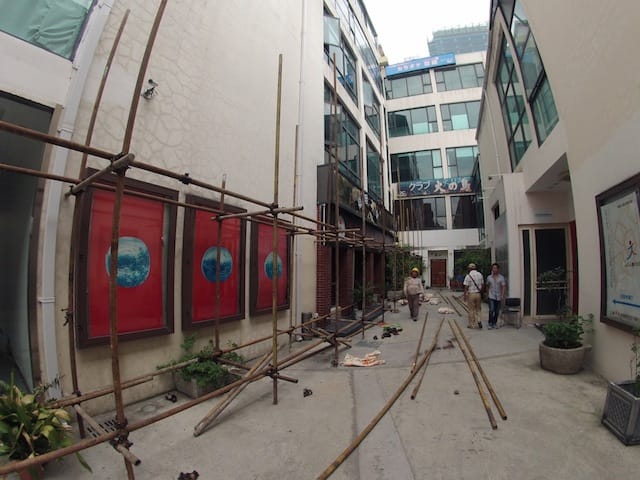
“My building used to be the tallest building in the area, now it’s the shortest,” he said by way of explaining the breakneck pace at which economic growth had transformed his peripheral Shanghai neighborhood to a luxe residential and commercial area. Eminent domain has long been a thorny issue for the Chinese state, which seizes land with remarkable frequency and impunity. And although Ai Weiwei was himself subjected to a state-sanctioned demolition in 2011, Gong insists that the state’s motive here is purely economic — “the Chinese government is living by selling stolen land,” he said.
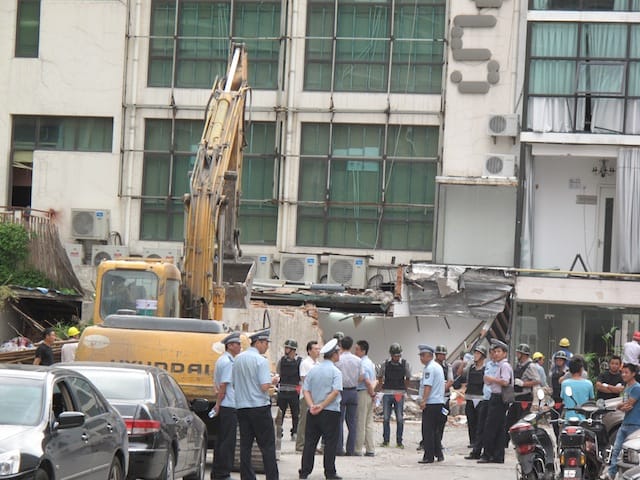
Gong has demanded restitution from the Shanghai government, though he has thus far not received a response to the letter he submitted four days ago along with proof that the property is properly deeded to him. And so, for the time being, the livelihoods of the 50 to 60 people who work at the compound hang in the balance.
“He’s really aware of the fact that he doesn’t know when they will bring a tank to his compound to demolish everything, because it’s so unpredictable,” his assistant explained.
